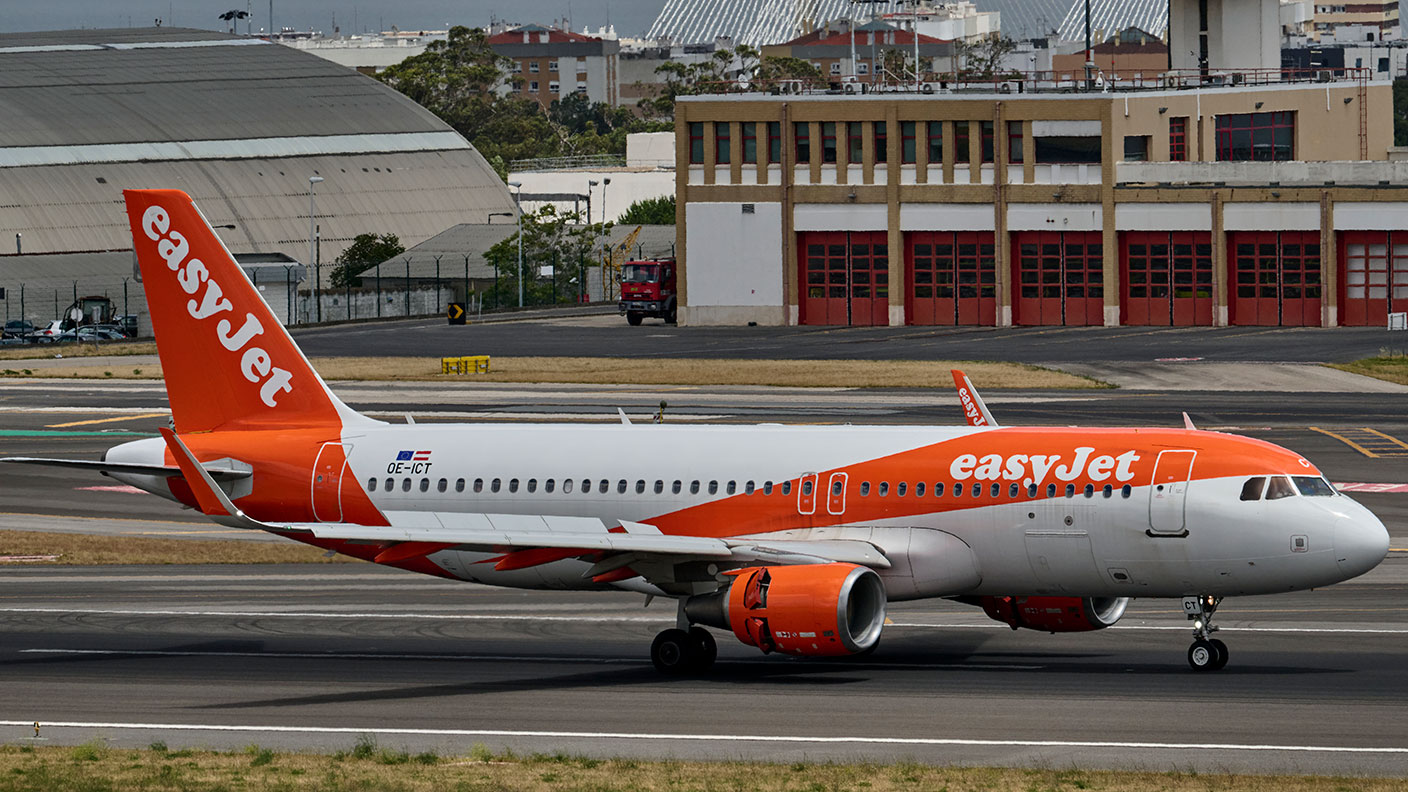Get the latest financial news, insights and expert analysis from our award-winning MoneyWeek team, to help you understand what really matters when it comes to your finances.
You are now subscribed
Your newsletter sign-up was successful
Want to add more newsletters?

Twice daily
MoneyWeek
Get the latest financial news, insights and expert analysis from our award-winning MoneyWeek team, to help you understand what really matters when it comes to your finances.

Four times a week
Look After My Bills
Sign up to our free money-saving newsletter, filled with the latest news and expert advice to help you find the best tips and deals for managing your bills. Start saving today!
These are the "best of times for European air passengers", says Chris Bryant on Bloomberg Gadfly. But "for airline investors, it's hard to imagine how things could possibly be worse".
Shareholders in easyJet(LSE: EZJ) have had a remarkably successful run over the last few years. In a notoriously cut-throat business, the company has managed to deliver an increase in profits every year since 2009. But last week it said that it expects pre-tax profits for the 12 months to 30 September to fall by some 28% compared with last year. Shares slumped to their lowest in over three years on the news, and are down by almost 50% in the last year.
Carolyn McCall, the airline's chief executive, blamed "extraordinary events". Terrorist attacks in Nice, Brussels and Paris and air-traffic control strikes in France have all disrupted schedules, and the tumbling pound is expected to wipe £90m off the airline's profits this year. "Every 1% of the pound weakening versus the US dollar pushes the fuel bill up roughly £10m", said analysts at Societe Generale. And while it's true that the airline is carrying 6.6% more passengers, they're paying 8.7% less for their seats.
MoneyWeek
Subscribe to MoneyWeek today and get your first six magazine issues absolutely FREE

Sign up to Money Morning
Don't miss the latest investment and personal finances news, market analysis, plus money-saving tips with our free twice-daily newsletter
Don't miss the latest investment and personal finances news, market analysis, plus money-saving tips with our free twice-daily newsletter
McCall is betting on expansion to see easyJet through the tough times "history shows that at times like this the strongest airlines become stronger", she says. "The airline grew capacity by 5.8% during April-September," says Royston Wild on Forbes.com, "and plans a further 8% hike in the current year." That should leave it "in good stead to enjoy splendid revenues growth once its current troubles subside".
But others aren't so optimistic. Adding capacity is the wrong way to go about things, says Bryant. If the airline industry wants to preserve shareholder value, it needs to consolidate. If it keeps "seeking salvation through expansion, fares will fall further, and so will earnings and airline stocks". "Europe's airlines are their own worst enemies," he adds. By contrast, US airlines, which have been through a period of consolidation, are "far more profitable than European rivals".
Quite, says Nils Pratley in The Guardian. Europe's short-haul market "has too much capacity", with "cheap oil" fuelling too much expansion. One comfort for shareholders is the "chunky" dividend, which yields 5.7% "at the reduced share price".
But that might not be enough to tempt investors. "Prospects for earnings themselves are the real worry. One tough year could be viewed as exceptional, but the City is expecting at least three before the clouds clear." Not all investors may be willing to wait that long, says Bryce Elder on FT Alphaville. "If I were a shareholder," he says, "I'd be asking questions."
Get the latest financial news, insights and expert analysis from our award-winning MoneyWeek team, to help you understand what really matters when it comes to your finances.

-
 Should you buy an active ETF?
Should you buy an active ETF?ETFs are often mischaracterised as passive products, but they can be a convenient way to add active management to your portfolio
-
 Power up your pension before 5 April – easy ways to save before the tax year end
Power up your pension before 5 April – easy ways to save before the tax year endWith the end of the tax year looming, pension savers currently have a window to review and maximise what’s going into their retirement funds – we look at how
-
 Avoid easyJet shares – there are better airlines to invest in
Avoid easyJet shares – there are better airlines to invest inTips EasyJet used to be one of Europe’s most impressive airlines. But now it is facing challenges on all fronts and losing out to the competition. Rupert Hargreaves explains why you shouldn’t buy easyJet shares.
-
 Easyjet profits fall as it bids to become the world’s first “zero carbon” airline
Easyjet profits fall as it bids to become the world’s first “zero carbon” airlineFeatures EasyJet reported a fall in profits today, after a “difficult” year, but is hoping to become the first “zero carbon” airline by offsetting its carbon emissions at a cost of £25m a year.
-
 What does Lufthansa’s profit warning mean for airline stocks?
What does Lufthansa’s profit warning mean for airline stocks?Features German airline Lufthansa issued a profit warning this morning. And it’s not the only airline finding things tough. But are there any bargains in the sector?
-
 Low-cost flights hit air pocket
Low-cost flights hit air pocketFeatures A ferocious price war has killed off the weaklings in the airline sector. But the survivors are well placed to thrive. Chris Carter reports.
-
 Business flyers are flocking to EasyJet
Business flyers are flocking to EasyJetFeatures EasyJet reported a loss in its half-year results, but the airline is winning the battle for business passengers.
-
Companies in the news: Sainsbury's and EasyJet
Features Sainsbury's and EasyJet recently reported some very encouraging figures. Phil Oakley looks in to whether you should buy, hold or sell.
